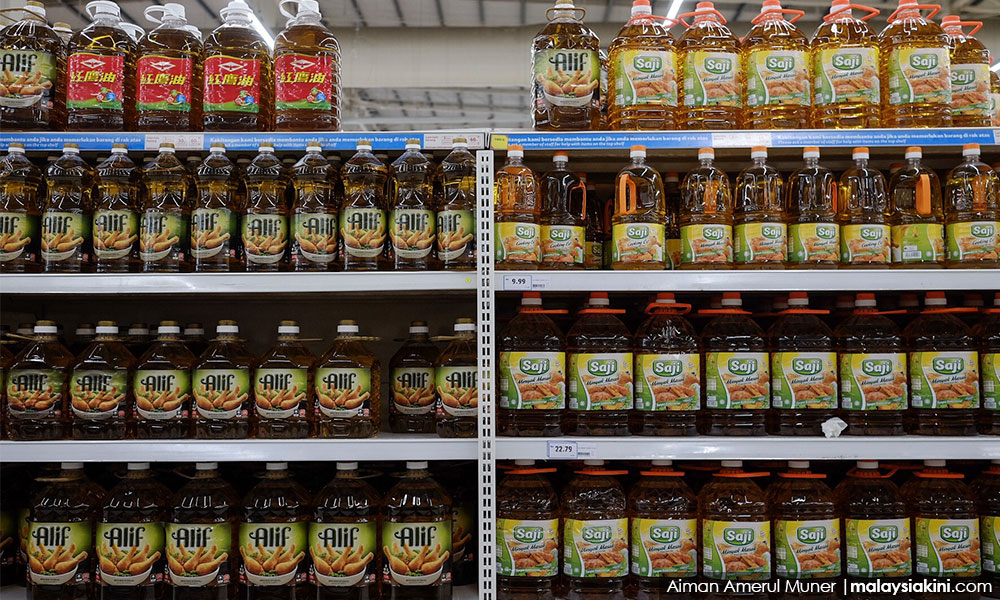GE14 | The abolition of the GST will leave the government with three options that could hurt the country's economy, said Permodalan Nasional Bhd chairperson Abdul Wahid Omar.
He cited the choices as raising income tax or introducing a new tax such as capital gains tax; increasing the country's fiscal deficit to five percent; or reducing spending, including development expenditure.
"This means scrapping or suspending development projects that have been approved previously," he said in a statement today.
He said the three options were very dangerous as they could affect the capital market and result in the ratings of the country's international debt credit being downgraded to BBB from the A3/A level.
“This will certainly increase borrowing costs and harm the country's economy," he said.
Wahid, who was also former minister in the Prime Minister's Department, said the original purpose of the GST implementation was to widen the tax base of the nation, as Malaysia had only two million income taxpayers then, a small number against its population of 30 million.
“GST is a consumption or indirect tax where those who spend more are among the people who earn more," he said.
The introduction of the GST was also in line with the fiscal consolidation measures targeting a balanced budget in the medium term, he added.

“With the increase in government revenues, we have not only reduced our fiscal deficit, but also implemented many of the previously delayed development projects such as highways, roads, bridges, schools, hospitals, rural clinics, and others.
“This includes the construction of the Pan Borneo Highway which is rapid progressing and the project is expected to be completed by 2022," he said.
Wahid described the proposal to abolish the GST and revert to the old tax system – sales and service tax (SST) – would be a step backward or 'regressive' and could hurt the economy.
"This is because the GST collection in 2017 was RM42 billion and is expected to increase to RM44 billion this year compared to the SST collection of RM17 billion in 2014," he said.
He said if the GST were to be abolished, there would be a shortfall of RM27 billion in revenue, constituting two percent of GDP.
Malaysia’s GST of six percent is the lowest in Asean and among the lowest among the 160 countries that adopted the tax regime, he added.
“For example, the rate imposed in Singapore is seven percent, Thailand at seven percent, Indonesia at 10 percent, Vietnam at 10 percent, the Philippines at 12 percent, Australia at 10 percent, and in the UK, it is much higher at 20 percent," he said.
Wahid said to reduce the impact of rising prices, the government had expanded the list of GST zero-rated or exempt on many goods, including basic food items such as rice, sugar, cooking oil, chicken, meat, and fish, as well as medicines, books, RON95 petrol and diesel.

The government, he said, had also announced offset measures in the 2014 Budget such as reducing individual income tax from one to three percent, corporate income tax from 25 to 24 percent and tax on small and medium enterprises from 20 to 19 percent.
“The BR1M for households earning RM3,000 and below per month was also increased from RM500 to RM650, while households earning RM3,000-4,000 a month were given BR1M amounted to RM450 for the first time," he said.
He said in the 2015 Budget, BR1M was raised to RM950 for households earning RM3,000 and below per month and RM750 for households earning between RM3,000 and RM4,000 per month, while for single individuals earning RM2,000 and below, BR1M was raised to RM350.
“All these are aimed at easing the impact of rising prices," he said.
Hence, Wahid hopes the GST system would be maintained, while attention given to improving the implementation of programmes and projects that would help improve the wellbeing of the people, and create more business opportunities and jobs.
"This is in line with the aim of the new economic model that aims to turn Malaysia into an inclusive and sustainable developed nation," he said.
Urging Malaysians to accept the election results with open hearts and unite to develop the country, he said: “Do not allow political views to divide or isolate families. Silaturrahim (brotherhood) needs to be maintained," he said.
He also advised voters to go out early to the polls and discharge their rights as citizens.
“Let us play our roles, cultivate a constructive attitude, as well as practise and abide by the principles of Rukun Negara, namely belief in god; loyalty to king and country; upholding the constitution; rule of law; and good social behaviour and morality,” he said.
- Bernama

